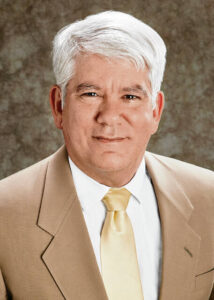1. What qualifications and experience make you suited for serving in this office?

Penny Githens (D): I am currently a Monroe County Commissioner. For those who are unfamiliar with the structure of county government, commissioners serve as the legislative and administrative branch of the county. I have held positions as a project manager for federally-funded health and education policy research projects, participated in educational program development, served as an volunteer educational advocate for special education students for over 20 years, served on the boards of the Autism Society of Indiana and the South Central Indiana Chapter of the Autism Society of America (now defunct), taught chemistry and math as a Peace Corps Volunteer in Kenya, and led the successful effort to have health insurance mandated for autism in Indiana.

David Hall (R): I have a proven, real-world track record as a conservative representative. I’m in my second term as an at-large county councilman, where I’ve represented all of Jackson County. I’m also serving in my second term on the Jackson County REMC board of directors. We serve over 20,000 households in parts of 10 Southern Indiana Counties, including Monroe, Brown and Jackson. I have been a small business owner for over 20 years, farm 500 acres of corn and soybeans and volunteer as a special deputy at the sheriff’s department. This broad range of experience makes me very well suited to represent the needs of our district at the statehouse.
Greg “No Bull” Knott (R): N/A.

Brad Swain (D): With over 36 years in public service, dealing with citizens under less-than-ideal circumstances as sheriff, and working with legislative issues for the last decade, I am familiar with public-safety issues and how my experience can positively impact legislative initiatives. As sheriff, I have worked with community groups to implement mental-health treatment and addiction solutions; various other treatment programs for inmates in our jail. Police reform, safety of women and children are issues I address daily. Serving as a child mentor several times, and leading civic service clubs has kept me in touch with the challenges facing our counties. As a multi-generation farmer, I understand the need to balance environmental concerns with farming.
2. Rank strongly disagree to strongly agree: Indiana funds for K-12 education should go only to public schools. How would you address school funding?
Githens: Strongly agree. Taxpayer funds should only go to public schools. Public schools take all students, education all students, transport students and feed students. Small, rural schools are often the hub of the community, and we need to do more to sustain our rural schools. We need to increase salaries for teachers and other school personnel. Instead of giving a tax break to Hoosiers, and instead of reducing the state income tax, we should be putting that money toward teacher salaries. I want to see maximum student-to-teacher ratios established for general and special education, and for the therapists.
Hall: Disagree. I’m a product of the public school system and my children are there now. I believe the ADM funding should follow the student and that parents should be empowered to choose the best education environment for their children.
Knott: N/A.
Swain: Agree. The legislature as a body is not expert in curriculum building, nor should it be. Curricula need be crafted by those who are appropriately educated in content and highly trained in youth development and educational techniques. It is the legislature’s job to provide adequate funding for public schools to implement approved curricula, providing a well-rounded education to our children.
3. Rank strongly disagree to strongly agree: Indiana should do more to address climate change. How would you address climate change?
Githens: Strongly agree. With the influx of new federal funds, we should create a passenger rail system throughout the state. A commuter rail system in and around Indianapolis is a must. We need to allow our rural transit systems to purchase electric buses and vans, and supply them with the necessary charging stations and solar panels to generate the electricity to power these vehicles. We need broadband throughout the state to reduce commuting. We need electric vehicle charging stations throughout the state, and private enterprises, like gas stations, should be able to install solar panels to generate electricity.
Hall: Agree. The energy market has been reacting to consumer demands by transitioning to cleaner sources for the last several years. As a result, many aging coal plants have been retired or slated for early retirement. At this time, I believe in an “all of the above approach” while transitioning to cleaner energy production over time. Advances in small modular reactors (SMR) can play a key role in developing a carbon free base load, while maintaining reliability, if we want to continue to responsibly reduce carbon emissions.
Knott: N/A.
Swain: Agree. Environmental laws should be properly funded for enforcement. Alternative energy options are highly desirable and are achievable through tax refunds and similar incentives. The legislature made poor choices when it put disincentives on electric/hybrid vehicles and took away incentives for residential solar panels; these laws need to be reversed. As sheriff, I’ve purchased green vehicles to help reduce carbon emissions as well as costs to the county and would advocate for other agencies to do so.
4. What are your priorities for Indiana in terms of reproductive rights and infant and maternal mortality?
Githens: I believe each woman should have autonomy over her own body. When it comes to infant and maternal mortality, Indiana’s track record is abysmal, especially for women of color. Medicaid, and Medicaid eligibility, should be expanded to cover all pre-, peri-, and postnatal medical visits and expenses, with the postnatal period extending to one year after the birth of the child. The coverage should include the treatment of postpartum depression, which annually affects an estimated three million women in the U.S. We are seeing more babies born to women with substance use disorders. Too often women with a drug addiction do not seek pre-natal care because of the laws currently on the books in Indiana. Let’s concentrate on the babies.
Hall: I believe all innocent human life has value and should be protected. A leading cause of maternal mortality in Indiana is substance use disorder. As a councilman I helped start a work release center in my home county. It will house up to 50 women and offers counseling from a drug addiction therapist, life skills classes and the opportunity to work full time in a clean and safe environment. There is no one size fits all approach to solving drug addiction and abuse but we must continue to remove hurdles and empower people to regain control of their lives.
Knott: N/A.
Swain: Mortality rates in Indiana for infants are 20% higher than the rest of the country, while rates for black infants increased in 2020. Maternal rates are worse: In 2021, Indiana was third highest in the country, with 43.6/100,000 deaths. Thirty-three counties in the state have no hospital or hospitals with obstetric services. We must assist rural hospitals to remain open, increase educational openings for nurses and doctors, and provide incentives for newly graduating healthcare professionals to work in under served areas. Reproductive rights are healthcare decisions between a woman and her doctor; the legislature must not infringe upon rights guaranteed by the Constitution.
5. Rank strongly disagree to strongly agree: Election administration must be conducted in a fair, transparent and non-partisan manner, ensuring all citizens have equal voting power, with results of elections decided by the freely cast votes of the citizenry. How you would address election integrity?
Githens: I fully support fair, transparent, non-partisan and easily accessed voting for all citizens. Paper ballots should be used in all elections across the state. I am in favor of “no excuse” absentee ballots for all citizens. My true preference is to institute a “vote by mail” system, with easy drop-off boxes for marked ballots. “Vote by mail” increases voter participation and would save Indiana millions of dollars every election. Everything possible should be done to increase early voting and decrease wait-times at polling locations. Voter intimidation should be a felony.
Hall: Strongly agree. Voters want the assurance that our elections in Indiana are safe and secure. Our laws require elections to be administered by a bipartisan election board in each county with the County Clerk serving as the Secretary. Each process is overseen by bipartisan teams from the initial request of a ballot up until the time the ballot is officially counted. Voters can register online, by mail, as well as several in-person options. I believe the state should encourage counties to print paper ballots as a physical confirmation of electronic votes cast for more accurate audits and transparent results.
Knott: N/A.
Swain: Strongly agree. Free and fair elections are the hallmark of our democracy and must not be infringed upon, diluted, or otherwise cast into doubt. It is important not to shrink, but to expand the franchise to vote whenever possible; automatic voter registration is one way to ensure all who want to vote legally can do so. With appropriate safeguards, mail-in ballots, early voting, and expanded voting hours all provide citizens with every opportunity to cast their ballots. Legislatures are not empowered to change the will of the voters – ballots cast and counted, as “one person, one vote,” is the intent of the Co




